Energy bill fears as winter looms on the edge of Scotland
- Published
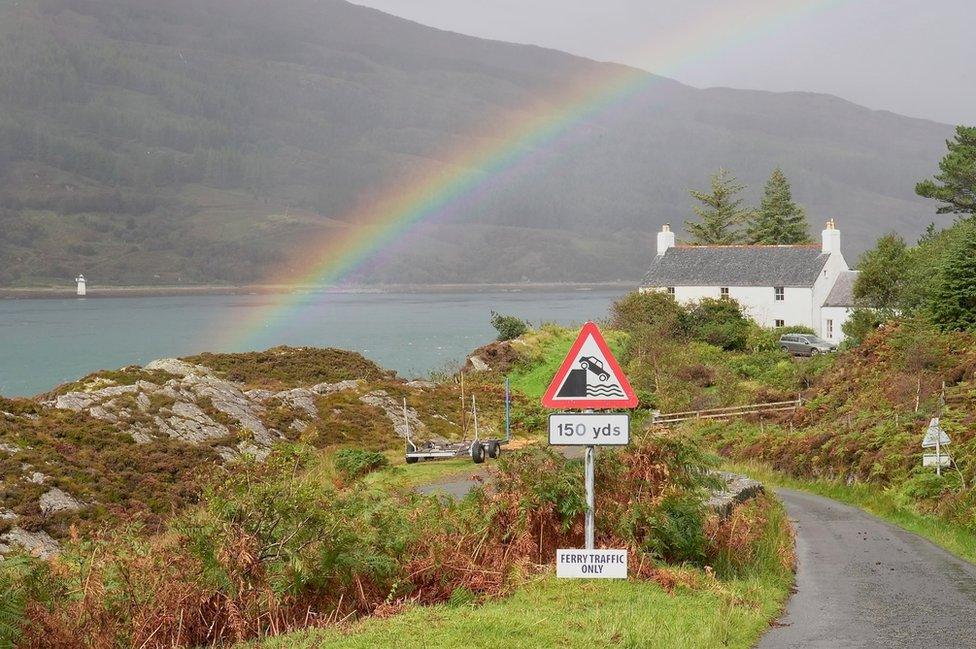
The ferry slipway at Glenelg
Winter is coming and in the village of Glenelg they're worried.
Energy bills here on the very edge of the Scottish mainland are way above the UK average and they have been rising fast.
Glenelg is in a stunning location, gazing out across the churning Kyle Rhea narrows to the Isle of Skye.
But the weather can be unforgiving, often cold and wet, and like many rural areas in the UK, Glenelg is not on the mains gas grid. That means it relies on costlier sources of heat such as oil, electricity or solid fuels like coal and wood.
At the heart of the community is the Glenelg and Arnisdale village hall, home to a host of activities - bowls, football, youth club, church group, line dancing and keep fit, to name just a few.
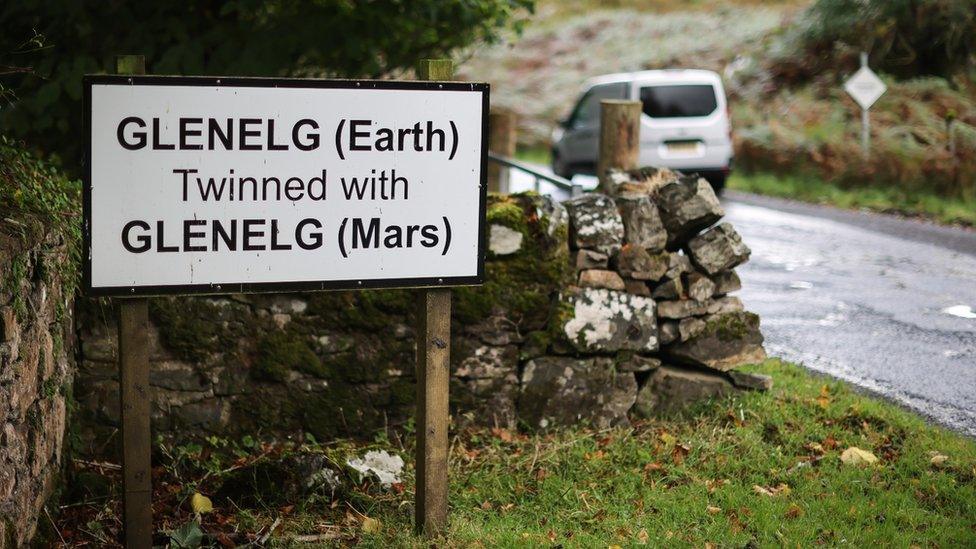
In the spring of 2021 the hall's quarterly energy bill was around £850. Then Russia invaded Ukraine, global energy prices soared and, to make matters worse, the hall's ageing heat pump packed in.
This spring the bill topped £4,000.
Hall treasurer Catriona Cameron is now bracing herself for the impact of the October increase in the price of the electricity which powers the hall's heaters.
She fears that keeping the facility running at all this winter will be "extremely challenging".
At the very least, she suspects, some clubs will have to be cancelled.
"It will impact the whole village," she says.
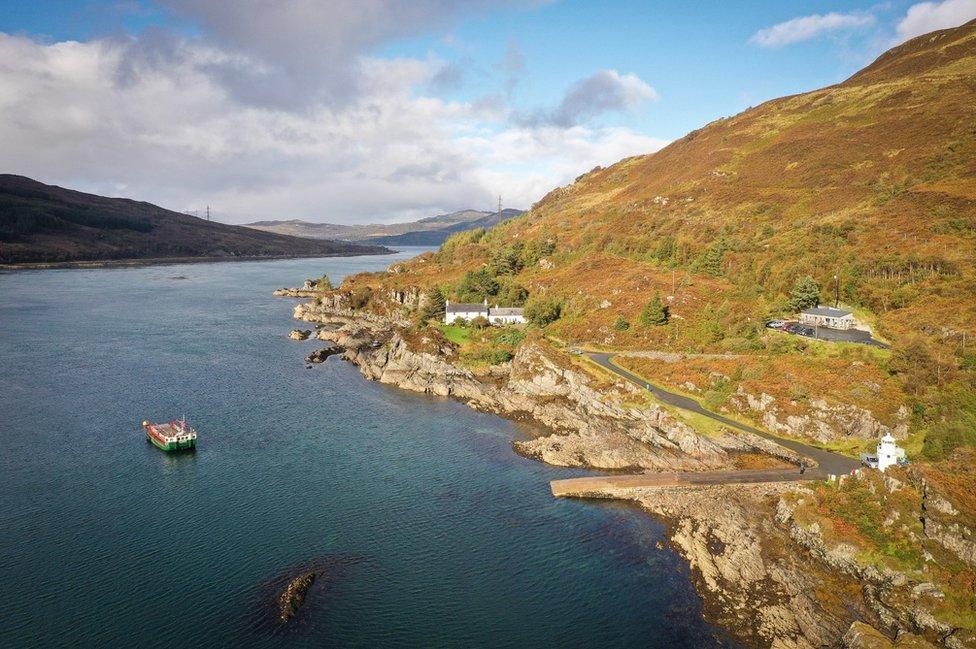
The most recent figures suggest that 262,000 Scottish homes use electricity as their primary heating fuel, which can mean extremely high costs as the unit price of electricity is more than treble that of gas, external.
A further 1.6 million households in the UK, external mainly use heating oil, including two thirds of homes in Northern Ireland and 129,000 households in Scotland.
Two minutes walk from the hall, in the Glenelg Inn, a log fire is blazing and the bar is buzzing.
The atmosphere is warm and welcoming but there are serious concerns here too.
The price of energy is one, but there is also a staffing crisis linked to a lack of affordable housing and Brexit. Plus there is inflation.
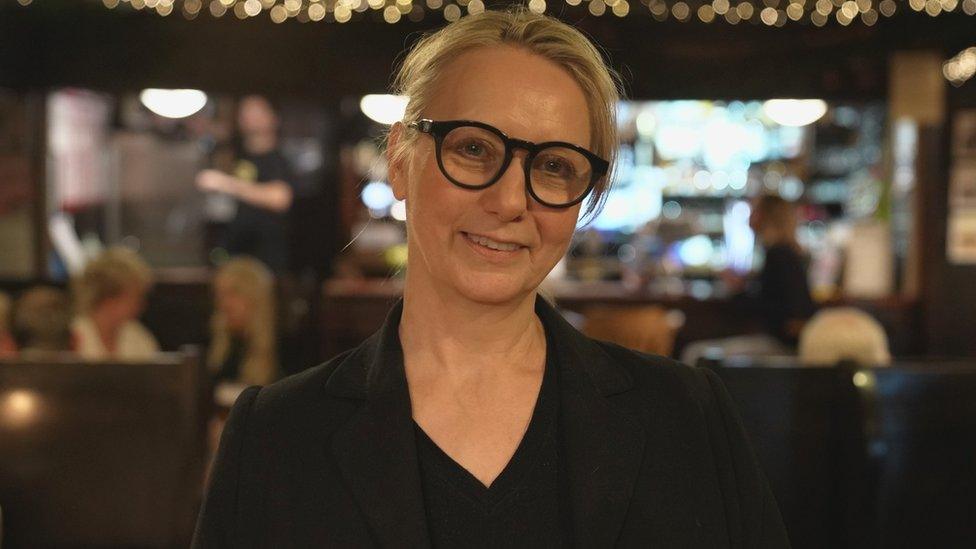
Innkeeper Sheila Condie is worried about the impact of rising prices
Innkeeper and owner Sheila Condie says the cost of supplies - beer, fish, meat and more - are all rising. The price of cooking oil, in particular, has soared.
Ms Condie says she's been forced to put up prices for food, drink and accommodation to help absorb the extra costs.
"I'm a bit scared about going into next year," she says.
"I'm scared about the staffing issue, the prices, the power prices."
Many locals are also scared about their own bills for heating oil. It is not covered by the UK government's energy price guarantee, although an extra £100 payment is available for households which use it, on top of a £400 electricity discount for all homes.
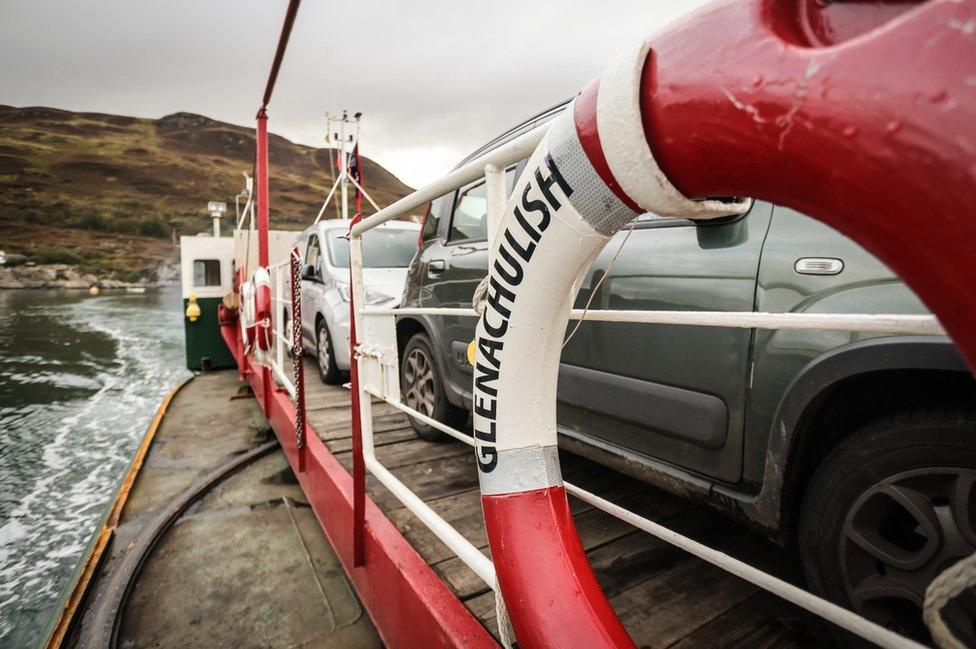
The MV Glenachulish is the last manually operated turntable ferry in the world
The £100 is described as "derisory" by Frazer Scott, chief executive of the charity Energy Action Scotland, which campaigns to reduce fuel poverty.
Heating oil suppliers variously estimate that the average consumer uses between 1,800 litres and 2,500 litres per year, giving an annual bill of up to £1,275 at September 2021 prices, rising to £2,550 at this September's rates.
Mr Scott estimates that it will cost households in rural areas between 50% to 100% more to achieve the same level of warmth that a household might have elsewhere.
"I'm really concerned about vulnerable people this winter if they're unable to heat their homes," he says.
He warns that without targeted help from the UK or Scottish governments there will be "many, many more excess winter deaths" this year.
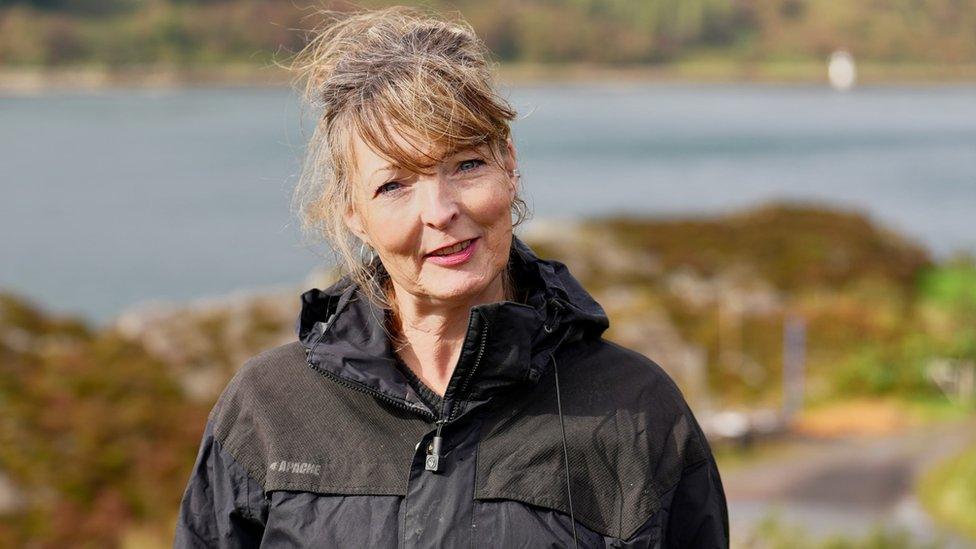
Jo Crawford is the general manager of the ferry service
Heating isn't the only energy concern in the Highlands and islands. The price of fuel for transport is a worry too, whether by land or sea.
Glenelg has several claims to fame - it's twinned with its namesake on Mars; has a palindromic name; and was a strategic outpost for the British government after the 1715 Jacobite rebellion.
It is also home to the last manually operated turntable ferry in the world, the MV Glenachulish.
The vessel can take half a dozen cars at a time on the short but challenging crossing through a fierce tidal stream to Skye, but the community trust which runs it is feeling the pressure.
The price of marine diesel which powers the ferry has jumped 70% in the past year, explains general manager Jo Crawford.
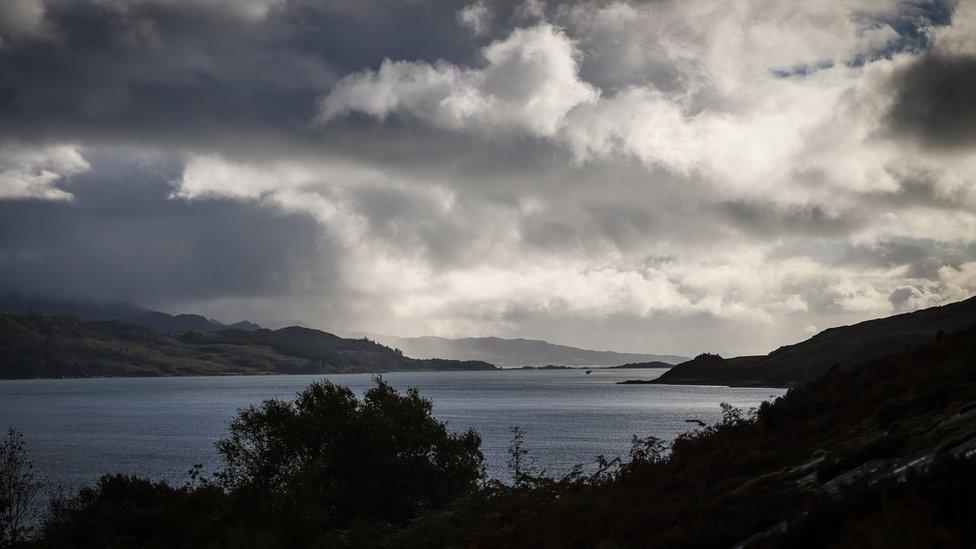
Looking towards Glenelg village from the ferry
"It does make me really nervous as to how we might be able to continue in the way that we are," she adds.
Sheila Condie at the Glenelg Inn wants to know why Scotland is in such a difficult position with energy bills.
"We're an energy rich country. Is there not a way of generating energy for ourselves here?" she asks.
"Why we can't have more energy resources that are on our doorsteps?
"It seems quite shocking."



Additional images by Kris Miller